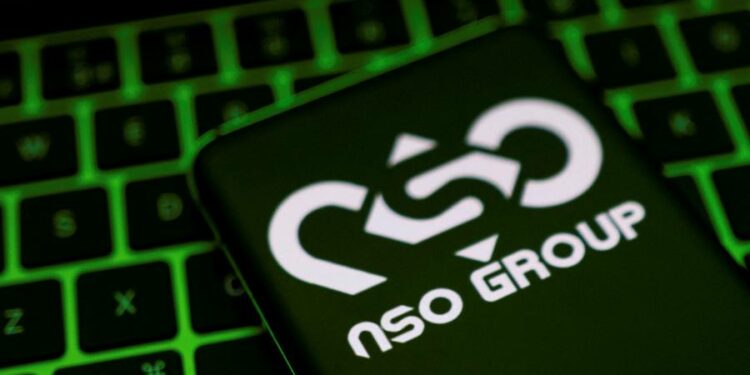US defence company L3Harris is in talks to buy the hacking technology behind Pegasus, the military-grade spyware developed by Israel’s NSO Group, a high-stakes manoeuvre that would place in American hands a tool that Washington has condemned for enabling transnational repression.
Under the proposal, L3Harris, a top-10 US defence contractor, would acquire the code behind Pegasus as well as NSO’s engineers, two people with knowledge of the situation said. To do so would require the approval of the Israeli government, which has had close ties with NSO for years and has used the company’s spyware as a diplomatic calling card.
However, the people cautioned that talks were preliminary, and there were big hurdles to clear before any deal could be agreed.
It is not clear what role, if any, Israel would maintain in relation to Pegasus if a deal is agreed, whether its staff will remain in the country and whether the US and Israel could form a partnership to oversee the spyware’s use. At present, the Israeli government has to grant licenses to export Pegasus because it is considered a weapon.
An Israeli official, who declined to address the progress of any talks because they were “a private commercial matter”, said the ministry of defence, which regulates the sale of Israeli weapons, “will have a clear interest in ensuring that this crucial technology remains in safe hands that the state of Israel can trust”.
NSO and L3Harris did not immediately comment.
The US has not been involved in the reported talks, a senior White House official said, adding that “the US government opposes efforts by foreign companies to circumvent US export control measures or sanctions”.
“Such a transaction, if it were to take place, raises serious counter-intelligence and security concerns,” the official said.
It is not clear how much NSO’s assets could be valued at in any transaction, though the company has about $500mn in debt.
Pegasus, which turns phones into listening devices and reveals their encrypted content, was developed by highly paid graduates of Israel’s elite military intelligence units. The country’s defence ministry closely regulates its sales to current or future allies.
The Israeli official said any sale was contingent on keeping the “intellectual prowess” of Pegasus under “sole and direct control of a corporate entity” regulated by the Israeli government.
The talks were first reported by Intelligence Online.
John Scott-Railton, a senior researcher at Citizen Lab at the University of Toronto, which has tracked the abuse of Pegasus by NSO’s clients, said: “This deal looks bad for national security, bad for human rights, and probably bad for L3’s shareholders.
“If it goes through it will also suggest that the Biden administration is more talk than action when it comes to holding spyware companies accountable.”
NSO was plunged into financial turmoil last year after a consortium of journalists reported on the use of the hacking tool against 37 journalists and human rights activists. It went months without sales to new customers and had to borrow $10mn to meet its November payroll, according to people with knowledge of the situation.
Days later, NSO was added to a US trade blacklist, meaning it cannot buy equipment or services from American companies without approval, after Pegasus was traced to the phones of US embassy employees in east Africa.
The US said it was blacklisting the company because Pegasus had enabled authoritarian governments to target dissidents, journalists and activists in an attempt to silence dissent. NSO says it only sells its technology to combat terrorism and crime after carefully vetting its government clients and seeking approval from the Israeli government.
It also says it investigates allegations of abuse immediately and has dropped customers in the past.
Any deal would likely require a signal from the US government that the new entity would not be placed on the trade blacklist, even if it had the same capabilities as NSO.
The senior White House official, declining to speak specifically about NSO and L3, indicated that any deal would not automatically result in NSO’s removal from the blacklist.
Such a transaction “would spur intensive review to examine whether the transaction poses a counter-intelligence threat to the US government and its systems and information, whether other US equities with the defence contractor may be at risk, to what extent a foreign entity or government retains a degree of access or control and the broader human rights implications”, the official said.
President Joe Biden’s administration is concerned about the proliferation of commercial surveillance tools such as those made by NSO, and is working to bar their use by the US government, the official said.











